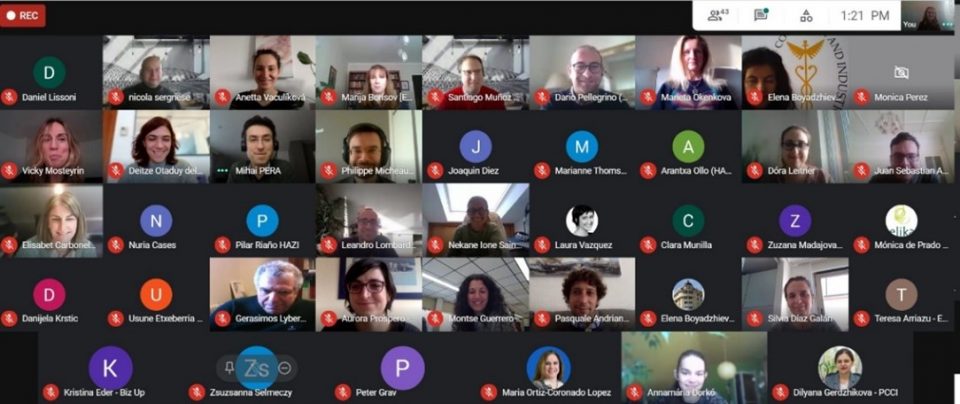An innovative collaborative circular food system to reduce food waste and losses in the agri-food chain
One of the innovative collaborative projects of food system is FoodRUs from Horizon 2020. Their aim is to reduce food waste and losses in the entire agri-food chain. The overall objective of FoodRUs is to enhance the resilience and sustainability of local and regional European food systems by demonstrating and deploying 12 innovative solutions and replicated in 3 complementary regions in Europe that will promote cooperative and sustainable models for reutilisation, prevention, recovery and valorisation of food losses and waste in a circular economy. 23 technologial, social, financial, legal, educational, political, labelling and organisational solutions will deployed involving the mobilisation and participation of retailers, farmers, consumer associations and numerous stakeholders of the whole food chain. The focus is on meat and fish in Denmark, vegetables in Spain and bread in Slovakia. FoodRUs will actively involve 6 European regions as Followers: Linz (Austria), Plovdiv (Bulgaria) and Halandri (Greece), Valencia (Spain), Cluj-Napoca (Romania) and Budapest (Hungary).
Under the coordination of Deusto University (Spain), 29 partners from across Europe will implement the activities of FoodRUs over 4 years.
The project was launched in November 2020. Due to the Covid-19 pandemic situation the kick-off meeting was organised online.
The National Food Chain Safety Office (Nébih) in Budapest, Hungary offer free educational packages for teachers, parents and for grandparents as well by the Educational Program. Up to now in the presentation lessons more than 10000 children and almost 1000 teachers participated. The fine results of the pilot program encouriged the Nébih to extend the program to a national level. Therefore in September, 2021 Nébih advertised the Ambassador for Education Competition. The participants might get credit points for acitivities, which are collected by the end of the school year. The initiative activites are the attitude-forming task of Nébih, the separate game developments, and organized school trips, where the main topic is the food safety and food wasting, reutilisation. For the effective work the educational materials are available for the colleagues. The tasks are deal with a higher level of food chain safety, the domestic food hygiene and the food waste prevention. The NFCSO facing an issue that exceptionally requires no extra money, just more attention. The main task is to raise awareness among consumers about how to do more for their environment through conscious and safe food purchasing, storage and handling. It is important to separate the unavoidable (e.g. bones, egg shells), the potentially avoidable (apple peel, chicken skin, bread-crust) and avoidable food waste (unnecessary purchased food, spoiled food due to the wrong storage method). The avoidable food waste represents 48-49 percent of the total food waste amounts.
Visit the website to learn more about the project.
Six follower regions are included in the project 5 as partner and 1 as support letter. In addition, ACR+ will define a strategy to engage with Follower Regions, in close collaboration with WP7 activities and the communication and dissemination strategy.
By being a Follower Region, those recruited territories will in particular benefit from direct knowledge sharing with FoodRUs demonstrator regions, opportunities of exchanges of expertise during FoodRUs networking events (task T5.2 and WP7) and project living labs activities (WP2) and support for the implementation of activities aimed at replicating the project outputs (including cooperation from project partners and experts in local events, etc.). In order to ensure the effective engagement of local stakeholders, two types of replication events will be implemented. Firstly, each FoodRUs demonstrator region will take advantage of the local stakeholders’ empowerment activities (WP2) to organise a “National Replication Workshop”.
Secondly, Follower Regions will be encouraged to implement a ‘Local Replication Workshop’ targeting relevant stakeholders of their territory (public administrations, farmers, producers, retailers, consumer associations, food Banks, etc.). The objective will be to engage regional stakeholders in order to propose and discuss local solutions, and to co-construct a roadmap for the region for the implementation of the FoodRUs approaches and solutions in the medium-term after the end of the project. FoodRUs partners will support the implementation of the Local Replication Workshops through participation to the events. ACR+ and ELIKA will also provide guidance on how to prepare the events.

